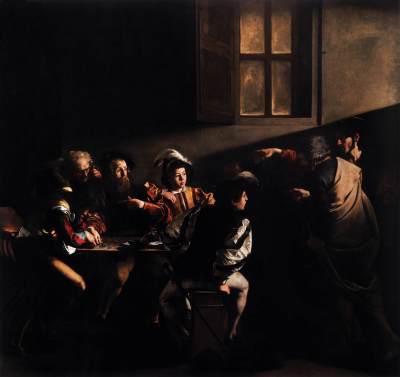First Reading – Wisdom 1:13-15; 2:23-24
Responsorial Psalm – Psalm 30:2, 4, 5-6, 11, 12, 13
Second Reading – 2 Corinthians 8:7, 9, 13-15
As someone who routinely teaches an introductory theology course for first-year college students, I can attest that one of the biggest theological questions at that stage of theological inquiry is the issue of theodicy. How can an ostensibly good, loving, and all-powerful God make sense in a world with so much suffering? Surely such a God would do something about this pain.
There are, of course, a host of responses to this challenge, from Boethius’s early medieval On the Consolation of Philosophy to C.S. Lewis’s famed The Problem of Pain, and Gustavo Gutiérrez’s powerful On Job: God-Talk and the Suffering of the Innocent (and beyond!). When I explore this question with my students, I always try to stress an insight that the longtime Boston College theologian Fr. Michael Himes shared with us in class one day.
Following the long Augustinian tradition of viewing evil as the absence of good, Himes argued that however much we may be tempted to “explain” the existence of evil and suffering, we should shy away from interpretations that make things too neat. Instead, we should hold on to the claim that suffering and evil is that which should not exist, and embrace the idea that there is an inherent contradiction with the existence of suffering at all.
I have been deeply formed by this profound insight and I see notable scriptural defense for this way of thinking in this week’s readings. The first reading, from the Book of Wisdom, for instance, boldly begins, “God did not make death, nor does he rejoice in the destruction of the living. For he fashioned all things that they might have being.”
Far from denying the reality of suffering—and even death—the author of Wisdom stresses that these pains are indeed a part of life. Yet, the first reading also argues that this was not how God wanted the world to work; if everything went according to God’s plan, we would not know pain, suffering, or death. In other words, as Fr. Himes put it poetically for our class, suffering is that which should not be.
But, of course, it is. And this is where the insights of the rest of this week’s readings come into play.
In the second reading, from St. Paul’s second letter to the Corinthians, we are reminded of “the gracious act of our Lord Jesus Christ,” who, “though he was rich, for your sake he became poor.” This proclamation of the Incarnation is directly linked to the problem of suffering, for as Jon Sobrino explicated so thoroughly in Christ the Liberator: A View from the Victims, God’s choice to take on human flesh was crucially an act of solidarity with humanity in our suffering. What Paul is stressing in this reading is that God has seen our plight with the suffering that should not be and instead of turning a blind eye has chosen, through Christ, to enter into the depths of our pain.
The Gospel reading this week underscores this divine response to suffering. The longer version of the Gospel reading includes two powerful acts of healing: the restoration of Jairus’s daughter that appears in the short reading and the curing of “a woman afflicted with hemorrhages for twelve years.”
In the former, Jesus puts God’s care in response to suffering on full display, simply ignoring the “naysayers” who insist that Jairus’s daughter has died and powerfully commanding “Little girl, I say to you, arise!” The girl’s immediate response shows how completely God stands in opposition to suffering and underscores the ways that even death is not part of how God wanted this world to be.
The latter story (which is really sandwiched in the middle of the healing of Jairus’s daughter), is an even more pronounced rejection of suffering. In this tale, a woman is so convinced of Jesus’s power to heal that she tells herself, “If I but touch his clothes, I shall be cured.” And she is right! There is a tense moment when it looks like she will get in trouble for taking the initiative to touch Jesus, rather than requesting an act of healing from him, but Jesus’s words cut through the drama: “Daughter, your faith has saved you.” What we see is a confirmation of God’s opposition to suffering. Jesus is not mad at this woman for searching for relief from suffering; that is precisely what God wants for us as well.
How does all this turn back to us? Well, if we believe that we truly the Body of Christ in this world now, (see Lumen Gentium nos. 8, 33), then we are called to act in accordance with the witness he showed to us. If, as St. Teresa of Avila stressed, “Christ has no body but yours…[and] yours are the eyes with which he looks/Compassion on this world,” then we have a responsibility to counteract suffering in the world when we see it. We have a duty to put charity, and justice, into action to help those in need. Anything less is a failure to follow the example of Christ and a denial of the fundamental belief that suffering and evil is exactly that which should not be.




